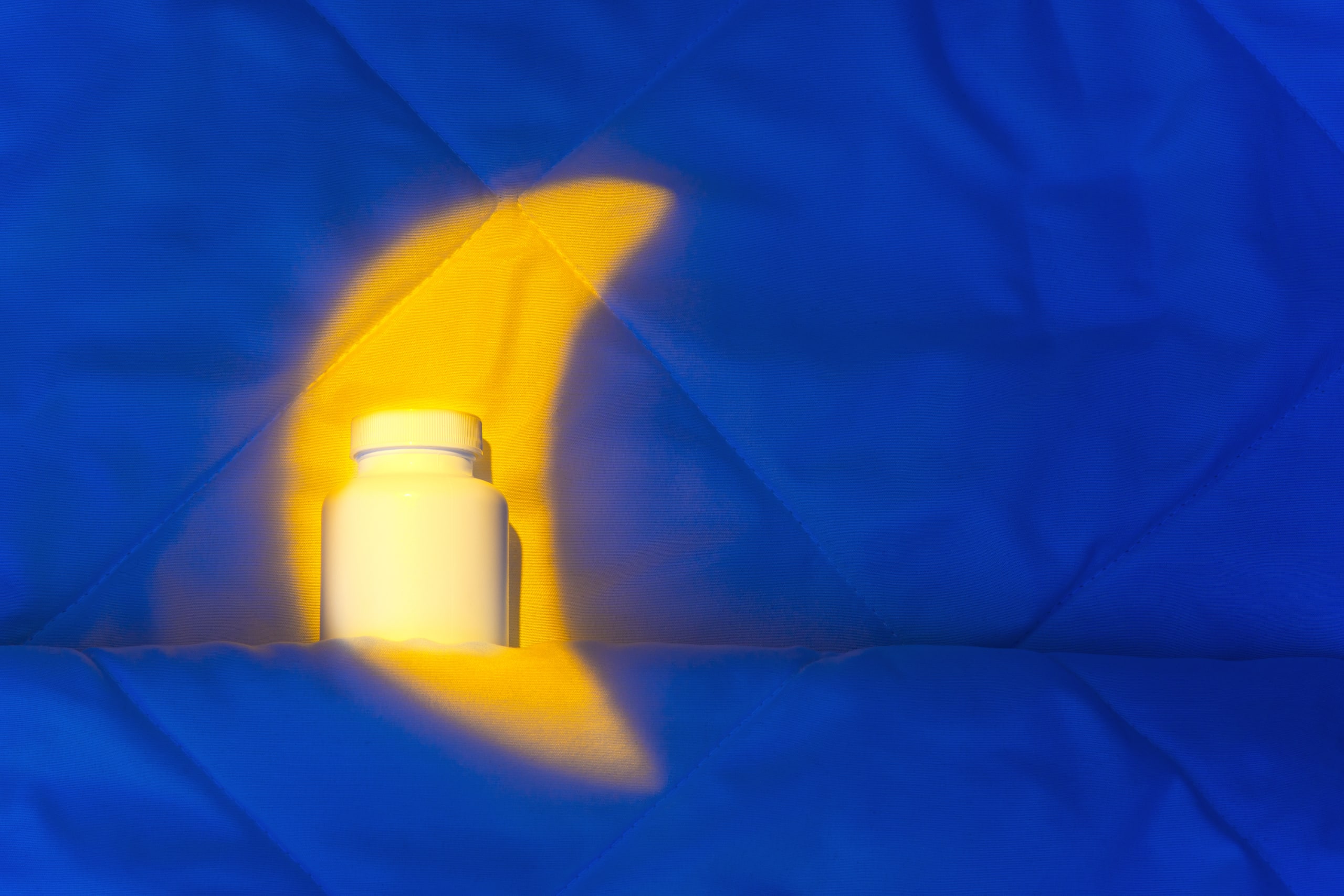Nourish to Rest (Part 2)

The Melatonin Conversation, Natural Sleep Allies, and the Rhythm of Healing
According to Dr. Deanna Minich, a functional medicine practitioner and nutritional biochemist, melatonin is not just a hormone that helps us sleep — it is a powerful antioxidant, immune modulator, and cellular protector. In her research on chronobiology and circadian medicine she emphasizes that melatonin's role extends far beyond treating insomnia. It acts as a biological signal of darkness and is best used to support, rather than override, our body's natural rhythms.
Melatonin is secreted by the pineal gland in response to darkness. Its primary role is to regulate the circadian rhythm, or biological clock, which governs not only our sleep-wake cycles but also many metabolic and immune functions. Melatonin also neutralizes oxidative stress, supports mitochondrial health, and helps modulate the immune response — functions that become increasingly important with age or in times of chronic inflammation.
Researchers often caution that melatonin is not a sedative. It does not act like a sleeping pill, instead it tells the body that night has arrived, making it most effective when used together with consistent sleep habits and healthy exposure to natural light.
Low doses of melatonin (0.3 to 1 milligram) may more closely mimic the body's natural nighttime secretion patterns, while higher doses (5 to 10 milligrams) can sometimes lead to grogginess, interfere with hormone balance, or suppress the body's own melatonin production. Studies have shown that low-dose melatonin is often sufficient to help reduce the time it takes to fall asleep, especially in people with irregular sleep patterns. It can support circadian realignment, for example in shift workers or those experiencing jet lag. It can act as a nighttime antioxidant to support cellular repair and protect the brain. And it can help in modulating immune function and supporting mitochondrial health.
However, melatonin is not ideal for every situation. Individuals vary in how they respond to supplementation. Some may feel groggy the next day or experience vivid dreams. Others may find that melatonin does little to help them if the root cause of their sleep disturbance is not biological but emotional or environmental. People with autoimmune disorders, mood conditions, or who take certain medications should consult a healthcare provider before using melatonin regularly.
The best practice generally is to use melatonin strategically: take the lowest effective dose (usually 0.3 to 1 milligram) about 60 to 90 minutes before bedtime, and limit its use to short-term support rather than as a nightly routine. Melatonin can be a helpful tool, but it works best when combined with foundational lifestyle practices that support healthy circadian rhythms, such as
- Maintaining a consistent sleep and wake schedule, even on weekends.
- Limiting blue light exposure at night by dimming lights or using amber filters on screens.
- Getting early morning sunlight exposure within 30 to 60 minutes of waking.
- Keeping the bedroom cool and quiet.
- Avoiding caffeine after 2 p.m., or at least eight hours before bed.
- Creating a wind-down ritual in the hour before sleep, free of screens, stress, or intense exercise.
If you have good habits but still trouble sleeping then certain non-hormonal supplements may also be helpful. Magnesium (especially glycinate or threonate forms) helps calm the nervous system and support GABA activity, the brain's primary inhibitory neurotransmitter. L-theanine, found in green tea, promotes a relaxed state without sedation. Herbal options like passionflower and lemon balm may ease tension and support restful sleep. Tart cherry extract, a natural source of melatonin, has been shown in studies to improve sleep duration and quality without the risk of over-supplementation.
Dr. Minich also encourages a personalized approach to supplementation. Functional lab testing for nutrient status, stress hormones, and gut health can reveal whether deeper imbalances may be interfering with rest.
As J. Krishnamurti said, “It is no measure of health to be well adjusted to a profoundly sick society.” In modern life, sleep disruption is not only physiological. It is emotional, mental, and cultural. Chronic stimulation, digital exposure, emotional stress, and disconnection from the natural world all contribute to restlessness and insomnia.
True rest begins not with a pill, but with rhythm. It begins by listening — to your body's signals, to the changing light, to your emotional needs, and to the way your day shapes your night. As Dr. Minich reminds us, sleep is not a passive act. It is a profound form of nourishment and self-alignment.
To nourish your sleep is to nourish your entire being.
References:
- Minich, D. (2020). Melatonin Beyond Sleep: A Review of Its Role in Immunity, Antioxidant Function, and Circadian Biology. Functional Medicine Updates.
- Hardeland R. (2012). Neurobiology, Pathophysiology, and Treatment of Melatonin Deficiency. Sleep Med Rev, 16(4), 237–246.
- Zhdanova, I.V. et al. (2001). Melatonin Treatment for Age-Related Insomnia. J Clin Endocrinol Metab, 86(10), 4727–4730.
- Buscemi N. et al. (2005). The Efficacy and Safety of Exogenous Melatonin for Primary Sleep Disorders. AHRQ Evidence Report/Technology Assessment No. 108.
- Reiter RJ et al. (2000). Melatonin as an Antioxidant: Biochemical and Clinical Implications. Prog Neurobiol, 56(3), 321–349.
- Carrillo-Vico A, et al. (2013). Melatonin: Buffering the Immune System. Int J Mol Sci, 14(4), 8638–8683.
- Arendt J. (1995). Melatonin and the Mammalian Pineal Gland. Chapman & Hall.
